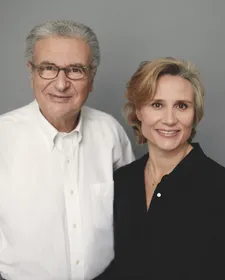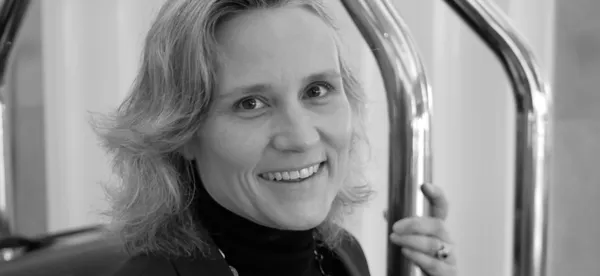She has literally hit the ground running as the new managing director of Unifrance, the promotional body which looks after the interest of le cinéma français on the world stage. Daniela Elstner, who previously was head of the sales outfit, Doc & Film International, helped to organise a 10K run through the Bois de Boulogne in Paris at sunrise as part of the recent 22nd Rendezvous with French Cinema - and she was leading the pack.
And after a quick change she was back in action, immaculately coiffed, talking among others to journalists in the hotel Le Collectionneur where the event and Market now is based close to the Champs-Elysées.
After a brief sojourn at the Clermont Ferrand Short Film Festival she’s about to head to Berlin for the city’s 70th Berlinale and then there’s Unifrance’s 25th Rendezvous with French Cinema in New York from 5 March in the company of a stellar delegation including Juliette Binoche and Chiara Mastroianni.
She took on the role held by Isabelle Giordano in September when she was still in the process of selling her company. She attended festivals in Toronto and Venice wearing two hats but now she is full-on in the new role which she observes brings her full circle. She began her career in the French film business as an assistant to Unifrance’s general manager in 1995.
 |
| Co-starring roles: Serge Toubiana, president and Daniela Elstner, managing director of Unifrance Photo: UniFrance |
“In this job you need lots of good ideas at the start, and you have to push them through. I am concerned about the young generation and whether we can rely on them to do the same job for French cinema as the generation who are now going to see films in cinemas. The 18 to 25 generation may be lost because they are too connected to their devices but with the next one there is something to be done to get them back in to theatres. You need to do this when they are younger and still eager to listen. At the age of 18 they do not. Yes they grow up with American cinema but there is a role for us to say ‘Hang on a minute there is something else and you may like it’. We have to strengthen our work with schools and young people in different countries. That is one of my priorities - it may seem a small thing, but it is crucial and relatively easy to do.
“And we have to find out how to work intelligently with platforms such as Netflix who have just opened an office in Paris. They seem to really want to have a dialogue now, which was not the case three years ago when we received no answers. The new audio-visual laws are going to tighten up the rules in France so we have to be around the table to discuss them.”
Elstner believes that Unifrance as a promotional agency can make the case with platforms on behalf of a particular director for the films to be shown first in cinemas even if it gets very complicated. “We should not be afraid of trying out things and taking risks - if you do not try you will not know whether something works or not,” she says.
Unifrance president Serge Toubiana — who has just begun his second two-year terms — says it was Elstner’s impressive résumé that convinced him she was the right person for the job. “She has had an interesting career path and the fact she was also trained by producer Margaret Ménégoz, who is one of my references, was also a plus,” he says.
Ask Elstner about the global attraction of French cinema, which seems particularly high profile this year both in festivals and on the awards circuit with titles such as Ladj Ly’s Oscar contender Les Misérables, Céline Sciamma’s Portrait Of A Lady On Fire, Jérémy Clapin’s I Lost My Body and Mati Diop’s Atlantics, and she has no hesitation in proclaiming that its diversity is the key.
She adds: “It’s also to do with the richness of the production values themselves. You can make films in France even with a small budget but they always look very well made - and they are well made because there is a whole world of professionals out there, some of whom may be prepared to work for less money for a low budget production. We have a great freedom. The basic system of financing in France allows us the ability to keep producing different kinds of films on different budgets. So we have to preserve that.”
With that she heads off with alacrity for the next interview, a spring in her step and a palpable rush of energy. Those early morning runs obviously have benefits.






















